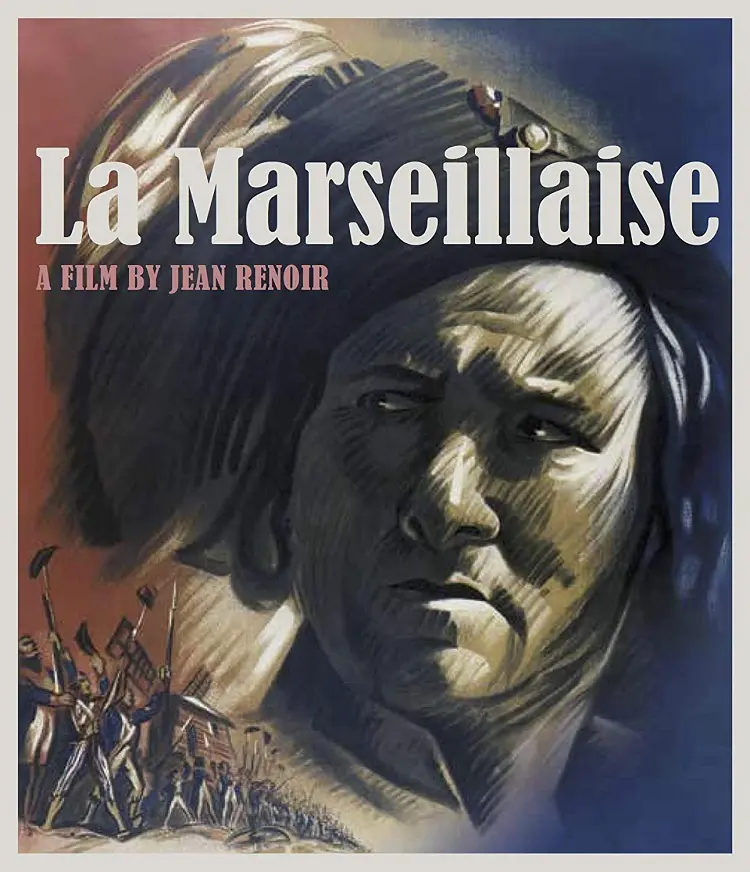
The French Revolution is one of the most important events of modern history. That mere commoners – people stricken with great poverty, ground under the thumb of the aristocracy – rose up to smash the monarchy and create a democratic republic is nothing short of astounding. It helped sweep in revolutions and reform across the globe, triggering the decline of absolute monarchies. That the revolution ultimately turned into the Reign of Terror in which thousands of so-called enemies were guillotined, leading to Napoleon declaring himself emperor does not diminish the importance of what came before those dark times.
In 1938, France found itself amongst political turmoil. Economic and class disturbances were causing great internal instability and the rise of Nazi Germany was threatening them from without. It was during this time of difficulties that the great director Jean Renoir decided to make a film about the French Revolution hoping to remind his people that the nation had once rallied together for the greater good. It didn’t help. The film drew mixed reviews at the time and was a financial failure.
Feeling that the film was telling an important story, Renoir did a great deal of historical research and has noted that nearly two-thirds of the dialogue was taken directly from historical documents. The film, with its attention to historical detail, has the feel of a documentary, and would not feel out of place inside a classroom. Because of this, it can also feel a bit dull at times, and while there are great moments of emotional passion, it is easy to see why it did not do well at the time and has mostly been forgotten today.
It opens in Versailles on July 14, 1789, with King Louis XVI (Pierre Renoir) being informed of the fall of the Bastille. He asks if it is a riot and obtains the response, “No, it is a revolution.” Cut to the countryside in June of 1790 where an old peasant is caught catching a pigeon in order to keep from starving. The bourgeois mayor and aristocratic judge are not moved by his pleas for leniency and sentence him to execution, but before the sentence can be carried out, he escapes to the nearby mountains. There, he meets two men, Arnaud (Andrew) and Bomier (Edmond Ardisson). The three discuss politics and when they learn of the oncoming revolution, Bomier and Arnaud return to the town to lend a hand.
With the exception of a few small scenes (whereupon we see how the King and other nobles react to the revolution), the film follows the action from the peasants’ point of view. In the early drafts of the script, Renoir had imagined employing several stars of the day to play the bigger names of the revolution (including Bristol, Danton, and Robespierre) but at some point, he decided it would be more interesting to tell the story from ground level, amongst the average citizen.
As someone who knows the very broad points of the French Revolution but none of the details, I found La Marseillaise to be both enlightening and confusing. It whips past both major and minor events over the course of several years without placing them in much context. Dates and places are splattered on the screen but not knowing what they mean, I found it difficult to keep up with. It gave me an overall sense of how the revolution came about and was won, but were you to quiz me about the history right now, I’d come up blank.
It is the story of the Revolution from the perspective of the men on the ground, who fought it with their hands, their blood, and their lives. The French peasantry at this time was extremely poor. The farmers were taxed within an inch of their lives. Tradesmen in the city were taxed and frowned upon and given very little opportunity for improvement. After the Seven Years War and the American Revolution, France was deeply in debt. To pay for this, the King instituted even more taxes. They say part of the spark of the revolution was when farmers were given the choice to hand their bread over to the already fat and lazy aristocracy or feed their families. La Marseillaise walks us through that process from the eyes of the little people.
For a film that lasts just over two hours and consists mostly of men talking to each other about political matters, I was surprisingly not bored for the most part, but neither was I completely enthralled. There were moments of great emotion like when the song “La Marseillaise,” what became the French national anthem, is first sung. For anyone familiar with Casablanca, you know how rousing that song can be when sung by a group of patriots, and it is used to great effect here. It is a very patriotic movie, but because I’m not French, though I have a great affection for that country, I found myself getting misty-eyed in its more rah-rah moments (I suspect if this were an American film I’d hate it for the same reasons).
It is a slow-moving film. One full of ideas and talking about those ideas. It relies on historical accuracy rather than exciting drama. As such, it is not for everyone. But for those interested in this incredibly historical moment or the history of French film, or Jean Renoir, then La Marseillaise is definitely recommended.
Kino Lorber presents La Marseillaise with a 1080p transfer and an aspect ratio of 1.33:1. Extras include an informative commentary from film critic Nick Pinkerton, a booklet essay, and an archival interview with Jean Renoir.